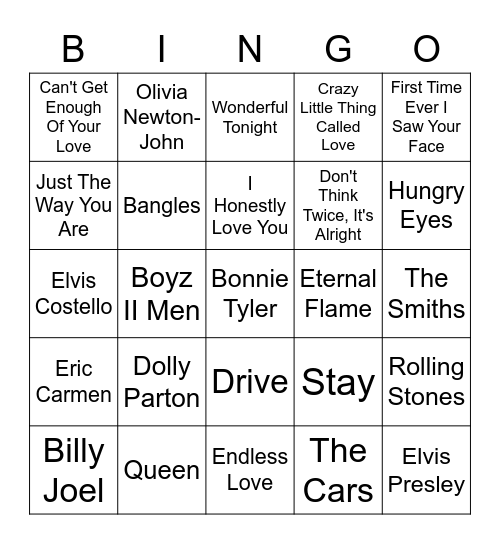

It’s a carved-in-granite rule: If you’re covering a Queen song, you shouldn’t try to sound like Freddie Mercury. Dwight Yoakam – Crazy Little Thing Called Love (Queen) When doing a cover, he can steer clear of both imitation and stand-out innovation, and the resulting song will still ring true as his. The fact that the country singer created waves with the song even as he hewed closely to Elvis’s vulnerable vocals and musical grandeur attests to what could simply be called the Dwight Yoakam Factor. Covered along the way by artists including Dee Dee Warwick, Fine Young Cannibals, Phish, and Martina McBride, “Suspicious Minds” received the Dwight Yoakam treatment in ’92. Mark James wrote and originally recorded this one, but it was Elvis Presley who, in ’69, made it famous. “Suspicious Minds” is such an Elvis song it’s easy to forget that at one time it wasn’t. Of Yoakam, the Los Angeles Times noted that “no one in country music since Elvis has used his pelvis quite so effectively.” And while it may take some combo of daring, insouciance, and an aggressively rhythmic beat to gyrate like Elvis Presley, covering one of his most famous songs (and his last number-one hit in America) takes pure mettle. Dwight Yoakam – Suspicious Minds (Elvis Presley)

Listeners unfamiliar with the Cheap Trick take could easily believe this song was written as a classic country tune - and with Dwight Yoakam in mind. Sieved through Yoakam’s twang, the lyrics take on an unforeseen longing. From the steel and acoustic guitar intro onward, this version is country all the way. Still, Yoakam is widely praised for peeling back the borderline goofiness of the original to reveal surprising sincerity. The song was campy dance music to the max, making it an unlikely match for even the pop-leaning country artists of the day – and more so for a traditionalist like Dwight Yoakam. Only after the band experienced a Messianic/Beatlemaniacal reception in Japan, triggering the rerelease of the song on their ’78 album Cheap Trick at Budokan, did America catch “I Want You to Want Me” fever. Dwight Yoakam – I Want You to Want Me (Cheap Trick)Ĭheap Trick released “I Want You to Want Me” on their In Color album in ’77 – and it landed with a clunk. In honor of the orthodox countryman who inspired untold rockabilly bands, we present a few of his cover songs that made the biggest splash by working when they shouldn’t have. By how seamlessly he translates rock and punk-pop numbers to country, he highlights the covered artists’ boundary-defying appeal as well. And while more than a few artists have covered non-obvious songs to demonstrate their own elasticity, Dwight Yoakam’s covers frequently go a step beyond this. More recently, he has covered none other than Prince. But he gave us his own renditions of songs by these bands and more on his ’97 album Under the Covers. And you don’t cover the Beatles no matter who you are. You don’t cover the Rolling Stones or The Clash – not when you’re a Resistol-wearing cowboy, you don’t. This stylistic versatility of his coupled with a loyalty to roots helps explain the success he’s experienced in covering songs that, well, you’re not supposed to cover. The compliments accompanying his music videos encompass dyed-in-the-wool Hank Williams fans and metalheads alike. Just as punk and rock color his song selection, presentation, and interests (asked what he was listening to in a 2005 interview, he answered Green Day and Jack White), his rustic sound speaks to those far outside genre bounds.

The counterintuitive influence runs both ways. There, he played hillbilly music in punk and rock clubs – attracting, in part, a demographic of fans affectionately known as cowpunks – and it’s clear some osmosis of the scene took place. After all, he didn’t give up when Nashville wasn’t receptive he headed to LA. While his guitar arrangements and twang are country the core, the man himself represents a bounty of styles. Still, there’s a reason Time once referred to Dwight Yoakam as a renaissance man. And Johnny Cash (who would call Yoakam his “favorite male artist”). And Buck Owens (with whom Yoakam would collaborate). The genre was leaning more and more in the direction of pop-country, and here was someone who sounded like Merle Haggard. You would think Dwight Yoakam is as country as they come – he scored his first number-one single off an album called Buenas Noches from a Lonely Room. And when expressing excitement over his recent bluegrass album, he says (and sounds right saying), “Wee doggies!” How country is Dwight Yoakam? When he came caroling on Nashville’s doorstep in the late 1970s, Nashville basically pretended it wasn’t home.


 0 kommentar(er)
0 kommentar(er)
